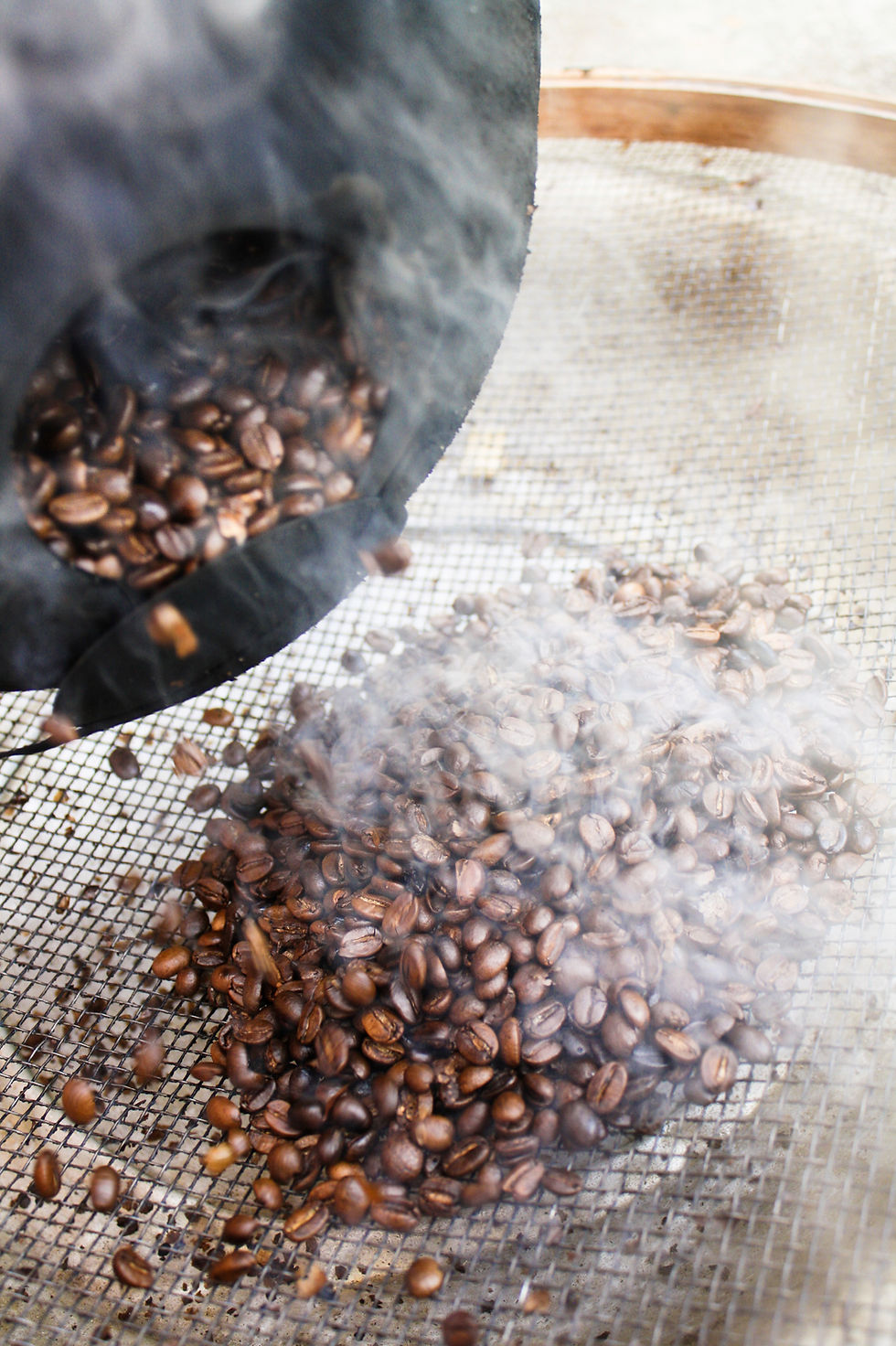Roast date matters - Keep it fresh!
- BRU Coffee Roasters
- Jun 11, 2023
- 4 min read
"BRU-ing" great coffee (at home or in your shop) is easier than you think. Understanding how your coffee will go stale is your first step to ensure that the coffee (and the amount) you have, is the best for your next brew.
The South African coffee industry is very exciting in the sense that you should be able to find a coffee roaster just around the corner from where you stay. If not, we have a local courier service that should have your coffee delivered within days. People are moving back to the idea of finding their local baker, butcher, and fresh produce provider, building a relationship and getting products with a natural origin, instead of buying in bulk at a local grocery store. In the same way, it is advisable to find your local roaster and buy some freshly roasted beans.
The problem.
First, buying in bulk.
How much coffee to keep in stock? Keep nothing more that what can be consumed within 6-7 weeks due to oxidization. Read more below under degassing.
Second, an even bigger problem is the fact that roasters do not advertise when the coffee was roasted. Understand that the most crucial part in the big story of enjoying a great cup of coffee, is the day on which the beans ended up in the coffee roaster! After this day, the count is on the get those beans ground, and into a cup. Without a roast date, it is impossible to know when your coffee will go stale!

Degassing.
During the roasting process, carbon dioxide gas is formed inside the bean. As soon as the roasting is finished, the release of carbon dioxide begins. This process, called degassing, lasts up to two weeks, give or take.
At this stage, the coffee is typically considered extremely fresh, with the flavour of the coffee still reaching its peak. Darker (and longer) roasts tend to degas more rapidly. Ambient temperature, humidity, storage containers and other factors affect degassing, as well.
As carbon dioxide leaves the coffee beans during degassing, it's replaced with oxygen.
This oxygen reacts with the oils and other solubles within the coffee bean. This process, otherwise known as oxidization, is what makes the coffee go stale. The oxidized oils and solubles means notable flavors won't be as pronounced and the coffee will taste flat.
To help keep oxygen from reaching the beans, most roasters package their coffee in airtight bags. Some install one-way CO2 valves, which allow carbon dioxide to escape the bag but make it difficult for oxygen to enter. If you store your coffee properly, a bag should remain fresh for up to six or seven weeks.
Let us fix it.
To get the maximum flavour out of your coffee, you should only buy freshly roasted coffee beans. Second to that, buy whole beans.
If by now, you want to stop reading, I urge you to do some research and put some money aside to invest in a good burr coffee grinder.
Ground coffee will become stale/flavorless much sooner that beans. And yes, even if you just make plunger coffee at home, your grinder will be the best investment you can make for your coffee preparation at home. You will see at your best coffee shop, the barista will grind the coffee just before he/she prepares the coffee for you.
Some coffee makers, especially those set on timers, require you to grind your coffee at night so they can have a hot pot ready for you in the morning. In this case, you're sacrificing some freshness in the name of convenience.
If you buy your morning cup from a coffee shop every day, you're most likely (though not guaranteed to be) getting fresh coffee, which might explain why coffee you make at home just doesn't taste the same.
So what is up with Roast Date.
Roasted coffee beans' flavour peaks a couple of days after the roast date (2-5 days after the roast date, depending on the bean properties). From this day onwards, the coffee is on a long downward spiral in terms of flavor. Roasted coffee can last up to 18 months (and probably never become toxic), but the good properties that enhance the flavour will only last a few weeks, after which it will taste awful.
Bags of coffee found on the shelf at your typical grocery store have likely been sitting there for months. Sadly, there's no real way to know exactly how long they've been there. Most roasters don't stamp or sticker their bags with a Roasted On date.
You'll be lucky to find a label with a Best By date, but there's still no way to tell how long the bag has been lying around.
At BRU we proud ourselves with freshly roasted coffee and put the roast date on our coffee bags to ensure our clients drink freshly roasted coffee, always.
Next time you make a turn at your local roaster, ask him what the roast date is, and keep this in mind when preparing your coffee. That said, do not stock up on coffee. Also consider buying a voucher, and not coffee, as a gift for your friends.
Can't find coffee with a roast date? We ship coffee nationally and go through a great deal of effort, to ensure our clients get their coffee within days of roasting. Buy online by clicking here.
Happy BRU-ing!



Fantastic insights on why roast date matters! Freshness truly defines flavor, and BRU Coffee Roasters’ commitment to transparency sets a great example. I love that you emphasize buying local and small-batch roasted beans. Even your packaging—like well-designed custom coffee boxes—reflects dedication to quality and freshness. Keep BRU-ing excellence!